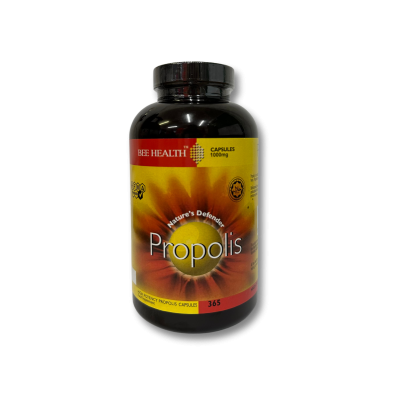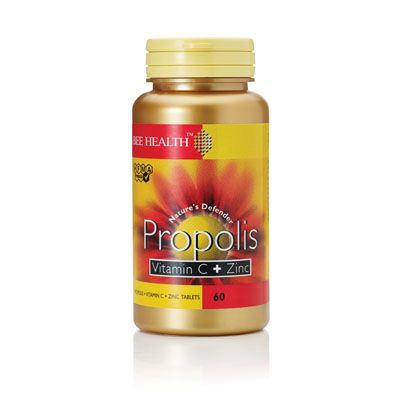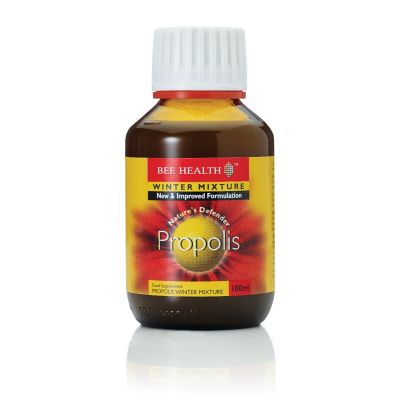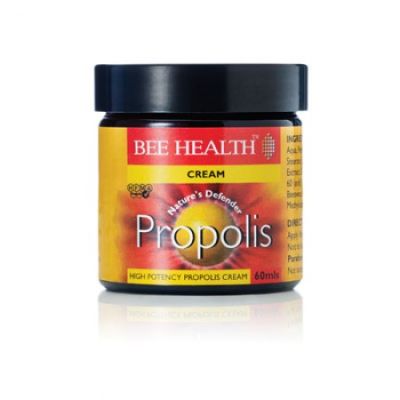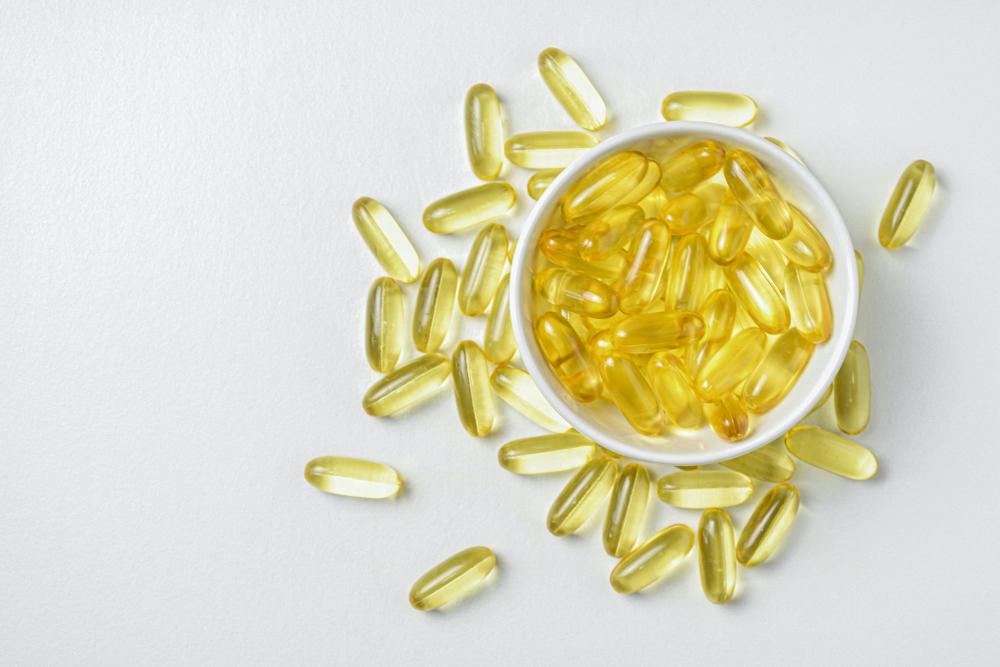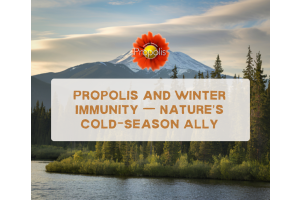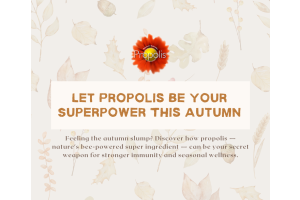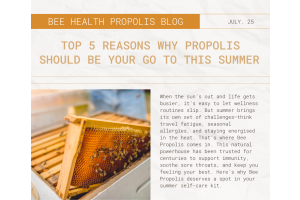Nature's Defender: The Remarkable Benefits of Bee Propolis
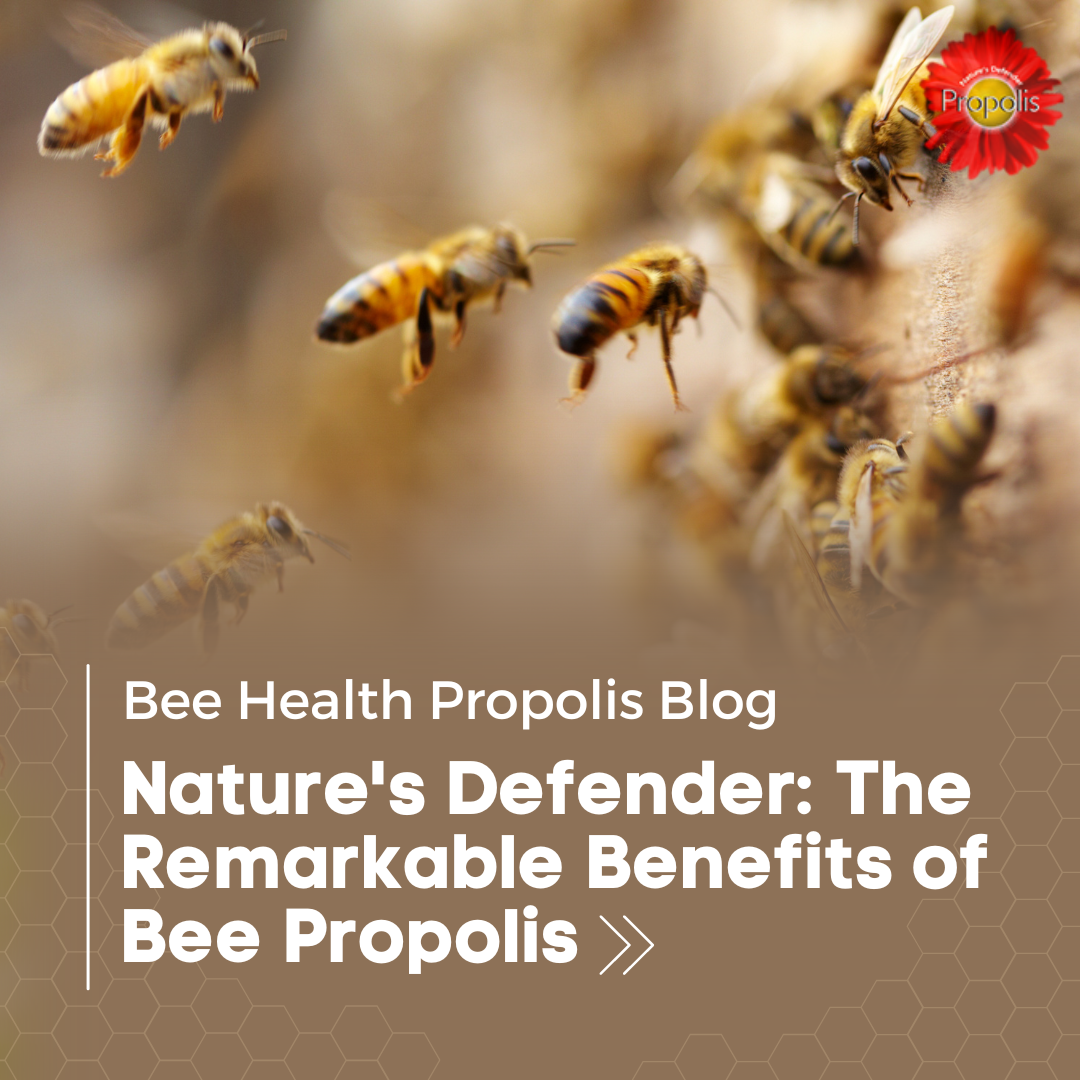
Honeybees buzz around tirelessly to make the sweet honey we love to eat and use in medicines, but there's more in the hive than meets the eye.
Bees also make propolis, a sticky substance made from horse chestnut and willow trees (among others). These resins safeguard the colony with serious germ-fighting power, halting the spread of bacteria and fungi into beehives.
The secret lies in its antibacterial flavonoids, like pinocembrin and galangin, which rupture microbial cell walls and shut down vital bacterial enzymes.
But propolis doesn't just battle bacteria – it's antifungal, too, inhibiting the drug-resistant Candida yeasts responsible for persistent mouth, throat, and genital infections.
A Quick Propolis History
Cave paintings in Spain tell us that modern humans discovered the wonders of honey around 7000 BC – propolis was a more recent discovery around 330 BC when Aristotle wrote about its use in medicine to protect wounds.
Scientific research into propolis began in the early 20th century from intrigue around its ability to combat infection much like sugar and salt.
We now know that propolis contains antioxidants, flavonoids, esters, vitamins, minerals, and more ingredients that are beneficial to our health.
Inflammation's Adversary
Long before modern NSAIDs, traditional healers harnessed propolis to tame inflammation. Animal studies show topical application significantly reduces joint swelling and stiffness in arthritis. Propolis' anti-inflammatory agents can short-circuit the inflammation cascade, preventing the flood of prostaglandins and cytokines that trigger discomfort.
This effect makes propolis helpful for soothing wounds, burns, acne, and skin conditions. Its gentle, calming properties offer an all-natural alternative for quelling multiple inflammation pathways simultaneously – a benefit our ancestors recognised centuries ago.
Dental Health Defender
Propolis is a friend to oral health, too. Its antibacterial compounds restrict plaque-causing bacteria, including the gum disease culprit Porphyromonas gingivalis.
Routine use as a mouth rinse or toothpaste can significantly slow dental plaque accumulation while improving gum health.
Unlike harsh ingredients like chlorhexidine, propolis calms oral tissues without excessive irritation, making it ideal for soothing red, swollen gums, or oral wounds after dental work. Propolis provides a gentle, natural solution for a healthier smile.
Antioxidant Powerhouse
Honeybees produce a dynamite antioxidant in propolis with a broad spectrum of polyphenols, flavonoids, and aromatic compounds offering serious free radical scavenging activity. Studies confirm propolis extracts effectively neutralise unstable, cell-damaging molecules that run rampant in infection, ageing, and disease.
Specific compounds in propolis, like quercetin and kaempferol, prove especially adept antioxidants. But propolis also indirectly bolsters our native antioxidant defences, preserving protective enzymes like superoxide dismutase and glutathione. This cellular guardian potential makes propolis a formidable ally against oxidative damage in disease and ageing.
Nature's Pharmacy
There are dozens of useful chemical constituents in propolis including the flavonoids pinocembrin, galangin, and chrysin, which are incredible anti-inflammatory and antibacterial fighting forces. Throw phenolic acids like caffeic acid and artepillin C into the mix, and you have a potent, natural remedy for infection.
Beyond its internal benefits, propolis can be a saving grace for a scratchy throat because it attacks bad bacteria and calms irritated tissues.
Propolis throat spray has gentle numbing properties from compounds like pinocembrin, which temporarily ease the pain of a sore throat, while the antimicrobial action speeds healing so you can swallow comfortably again.
A Skin-Saving Salve
Propolis is a true friend to the skin, promoting a clear, calm complexion thanks to its anti-inflammatory properties soothing redness and irritation in conditions like eczema and psoriasis. A dab of propolis balm can take the angry itch out of a bug bite or rash.
Bee balms also speed skin healing in some people with antioxidant activity, and propolis creams and ointments may help cuts, scrapes, and burns mend more quickly with less risk of infection. It's a must for your natural first aid kit.
The Bees Are Right
Honeybees are masters of hygiene, and propolis is their secret weapon as they meticulously coat the hive's interior with this antimicrobial resin, creating a sterile environment that keeps harmful bacteria and fungi at bay. Propolis acts as a natural disinfectant, ensuring the colony remains healthy and free from disease.
Propolis also plays a role in regulating the hive's internal environment by sealing cracks and gaps to maintain optimal temperature and humidity levels for the brood - crucial for the development of healthy offspring.
Summing Up
The more we learn about buzzy bees and propolis, the more we marvel at its versatile health-defending potential at quashing inflammation, combating microbes, and holding a treasure trove of wellness-boosting benefits.
Bees crafted this medicinal resin long before humans discovered its antimicrobial, antioxidant, and anti-inflammatory properties, which we now enjoy in extracts, supplements, and topical treatments.
The best ways to take propolis include capsules and tablets and lozenges, or you can use it topically with propolis cream or liquids.
Adding a few of these propolis supplements and treatments to your health, wellness, and beauty regime could do you a world of good.

